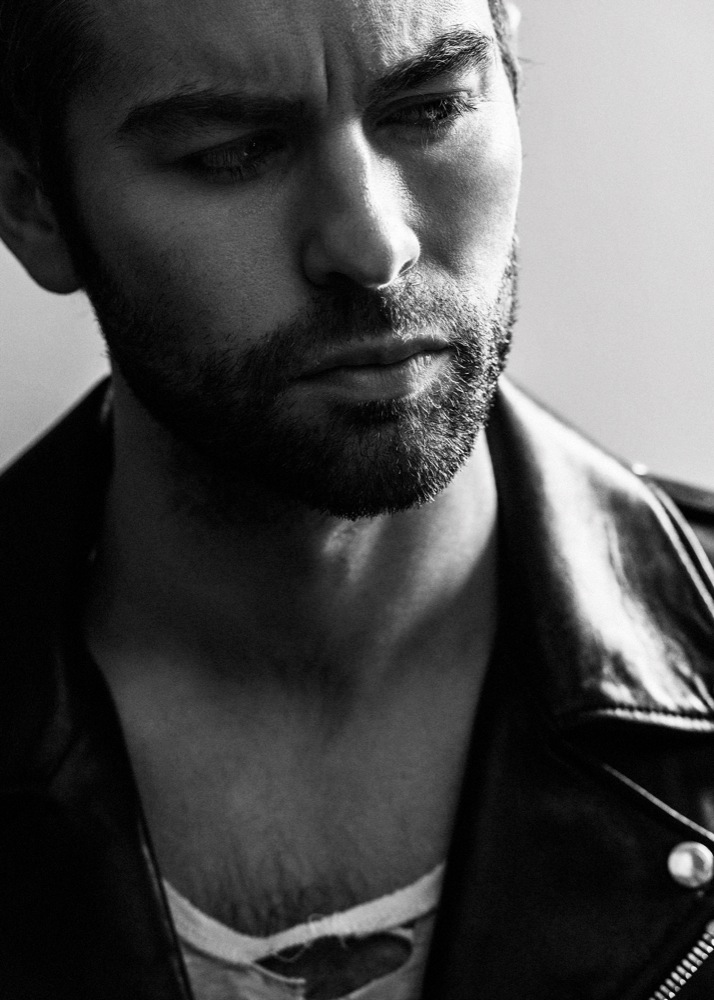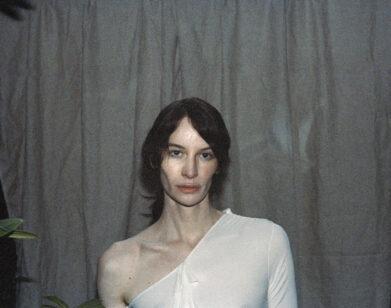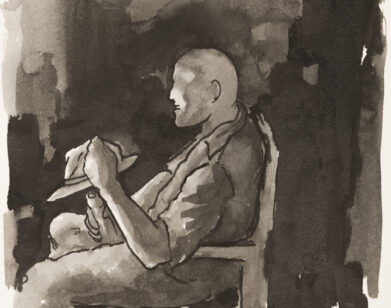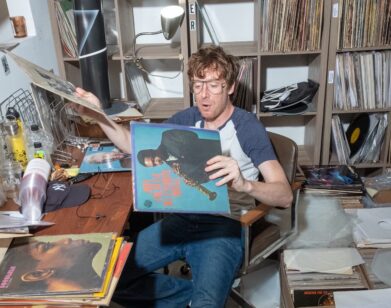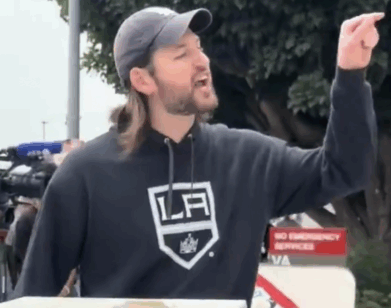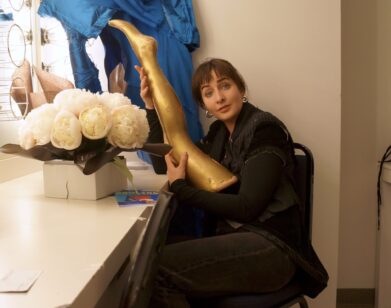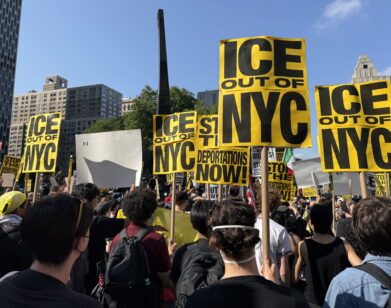The Return of Chace Crawford
CHACE CRAWFORD AT THE STANDARD, DOWNTOWN LA, AUGUST 2015. PHOTOS: BRIAN HIGBEE. STYLING: MARK HOLMES. GROOMING: ANNA BERNABE AT ART DEPARTMENT USING ARMANI BEAUTY AND LEONOR GREYL HAIRCARE.
Chace Crawford is ready to re-enter the world of television. It’s been three years since the Dallas, Texas native wrapped Gossip Girl, the teen-focused show that made him famous. Now 30, and with a few small film roles under his belt, Crawford is starring alongside Don Johnson in ABC’s new drama Blood & Oil. Set in North Dakota and filmed in Park City, Utah, Blood & Oil is a soapy spin on the state’s very real, modern oil boom, during which hundreds of thousands of workers have migrated to find their fortune—only to end up living unemployed in tent cities.
Crawford plays Billy Lefever, a newlywed Floridian who dreams of starting a laundromat. On the drive up, however, Billy and his wife Cody (Rebecca Rittenhouse) veer off the highway, destroying their pickup truck and the uninsured washers and dryers strapped to the truck’s bed. Billy and Cody are left with a choice: crawl back to their friends and family as failures, or attempt to salvage their savings in the local oil game. Among the characters the Lefevers meet along the way are local oil magnate Hap Briggs (Johnson), his beautiful wife Carla (Amber Valletta), and prodigal son Wick (Scott Michael Foster).
Here, Crawford talks to his friend of almost a decade, actor Taylor Kitsch, with whom he stared in a small teen movie called The Covenant at the very beginning of his career.
CHACE CRAWFORD: Yes! There he is. What the fuck’s going on? Are you up in Montana?
TAYLOR KITSCH: I came to Montana two days ago. I went up Bear Tooth Road—I’ll send you some pics. Then I got to Pete’s place in Big Sky and I literally just drove through a blizzard. It’s crazy! I got another buddy coming up and meeting me there and he’s bringing his golf clubs. [laughs] I was like, “I don’t think you’re going to need those.”
CRAWFORD: Might be some dead weight.
KITSCH: I barely made it, man. I’ve been pacing around the last 10 minutes trying to feel my hands.
CRAWFORD: You just got there?
KITSCH: I got here 10 minutes ago.
CRAWFORD: Oh my god. I’m glad you made it.
KITSCH: Is it snowing where you are?
CRAWFORD: No, it’s not that cold. It’s only 7,000 feet, so it’s not super crazy. It’s just been pissing rain. I’m doing that triathalon this coming Sunday.
KITSCH: Are you prepared for it?
CRAWFORD: I don’t know, man. I went tubing on the lake last Labor Day—tubing and wakeboarding. I killed it, obviously, but I woke up super sore and I had this kind of physical scene. I threw my whole neck and back out—it seized up. I couldn’t do anything for a week. So we’ll see, I’m just going to try and survive it.
KITSCH: It’s in Park City?
CRAWFORD: It’s actually in Malibu. I’ll have a little bit of advantage going into it because of the altitude.
KITSCH: It’s for charity, too, right?
CRAWFORD: Yeah, it’s for the Children’s Hospital. It’s a big event. I have a buddy from Austin coming up to do it with me. We’ll see how it goes.
KITSCH: You can always quit, man. You can always quit.
CRAWFORD: And have a beer? The easy way out. Just a slice of pizza.
KITSCH: So tell me about this character? I know this guy is a lot different than other guys that you’ve played. I was just there— as people don’t know, but they do know now—visiting on a motorcycle trip and we were talking briefly about it. Tell me about some of the things that you got into that you maybe didn’t know were going to be as prevalent as they are? You’re on Episode Six now?
CRAWFORD: Yeah, we’re about to start six.
KITSCH: Finding that groove now, where you’re really starting to settle into him and feel comfortable, what are some of those things that you’ve explored through the work that have caught you off-guard or surprised you?
CRAWFORD: It’s so different, playing this character compared to what I was doing. It’s still television—it’s a medium where you’re a little bit, not a slave to the writing, but you’ve got to see what kind of curve balls they throw at you. With the other one, we started off so young; I was 20 years old playing 18. We got to be older, but it never really moved out of that genre. With this [show], having a wife, being married and having that relationship, I always thought it was very important to keep it grounded in some form of reality. I really hope they try and maintain that. They gave us a lot of freedom. The pilot’s really good. It’s a really different way of working, and [the director] Jonas [Pate] was great. I know you know him.
KITSCH: I worked with him on Friday Night Lights. On TV in general, it’s tough when directors just come in and you’re in your groove and whatnot. He was one guy I remember on FNL that fit in seamlessly. We were talking about it when you were thinking about taking the job—that it was Jonas and you had met him. Tell me about how you guys have got along and that process.
CRAWFORD: Oh man, I’m taking him to a Cowboys’ game in Atlanta—the third game.
KITSCH: [laughs] So you guys are dating.
CRAWFORD: Yeah, we’re dating, basically. His wife’s not too happy, but we’ve really come a long way in three months. [laughs] I remember sitting down in that café with you; obviously what you say is weighted, and you were right, dude. We couldn’t have lucked out more with a guy who understands that world—his twin brother [Josh Pate] wrote the script and actually went up to North Dakota and saw how they really live. And with creating a scope and creating this world—it’s got to be entertaining and it’s got to have the drama there and all that jazz, but with some of the nuances of the backdrop I thought they did a really good job. Even with directing the extras, it was really cool. But Jonas, his style’s good. He does a lot of oners—just one take with the crane.
KITSCH: No way. That’s great.
CRAWFORD: I loved working that way and I know Rebecca [Rittenhouse] did too. It’s definitely a huge change for me, man. I think it’s a step up for me in terms of the work.
KITSCH: Tell me about Park City and how that’s its own character in the show.
CRAWFORD: When people asked, “Where’s the show shooting?” and I was like, “Uh…Utah,” you were like, “That’s awesome!” You’re the only person that had that reaction and it cracked me up.
KITSCH: Really?
CRAWFORD: Yeah. And I’m loving Park City, dude. I was worried; I got so used to living in a city. But I bought a truck and I’ve been fishing and hiking and all that. It’s been a lot healthier. I’ve been cooking more and becoming a real person. I turned 30 this summer. It’s been a great change. It’s just peaceful.
KITSCH: You’re shooting in the off-season now, so it’s even more peaceful.
CRAWFORD: Yeah. I’m actually nervous about ski season. People were talking about Sundance yesterday—I’d rather not be here for Sundance. It’s been so nice, the thought of that coming in a being a bit of a circus…
KITSCH: It’s like Austin, man.
CRAWFORD: Yeah, it is. It’s got a similar vibe. It’s not quite as big and they don’t have the barbecue.
KITSCH: When people come into Austin, even though I’m a transplant, I’m like, “Get the fuck out of here. Leave me alone. Leave the city alone.”
CRAWFORD: You’re a Texan now, bro.
KITSCH: For me as an actor, I use a lot of music. Music is a huge part of developing and getting into a certain mindset. Tell me if there are certain artists or certain guys that, for this guy that you’re playing, you’re listening to.
CRAWFORD: I love that. I remember the time we worked together it was just music. It’s such a big deal, especially I find on set when there’s some much distraction. People forget that it’s all this commotion and stuff going on. I think it really helps to put on headphones. I was listening to a lot of Bruce Springsteen, actually, when we shot the pilot.
KITSCH: Yes! Yes.
CRAWFORD: I don’t know what it was. It was just Utah, the backdrop. Not that he has anything to do with Utah. I heard one song on a film, and I started listening to that one song and it reignited a little Bruce Springsteen. It set me up.
KITSCH: It’s funny how that shit finds you, too. It just seems like a good fit and you don’t even question it.
CRAWFORD: It does. It sends you on a trip for a while. I got into that and then just shooting the pilot, you’re coming into a new family and these people that, potentially, you are going to work with for a while and it was just nice to have that. And Jonas too, it was such a collaborative, team effort. It was never, he was trying to make his mark on this so we had to do it this way. It was all about the work and making it good.
KITSCH: Even just the working there and the blue collar [in Springsteen’s songs], that’s kind of how you started out—just going in there, nose-to-the-grindstone, so it really does kind of fit.
CRAWFORD: And just the rambling qualities of his songs.
KITSCH: And the struggle. That’s a lot of what you’re dealing with in the beginning—that struggle to find work and find your place in the new town.
CRAWFORD: Yeah.
KITSCH: Are you throwing little points over to the writers about what’s clicking and what’s not? Are you asking Jonas, “Are you going this way? What happens if…” kind of scenarios? Because we had a lot of that collaborative process on FNL: “What if we throw Riggins something like this?” Do you have that kind of freedom yet?
CRAWFORD: I’m starting to cultivate that. There have been some changes behind the scenes as far as what the network wants and trying to find the right tone. But they said they want us to connect and make those calls.
KITSCH: It makes you more accountable—everyone more accountable.
CRAWFORD: Yeah. You know that character, at this point, hopefully better than anyone else would. They’ve got a lot on their plates trying to weave in all of these different characters. And it’s hard to write for 22 episodes. But I’ve been happy with my stuff.
KITSCH: What about other actors that you admire, or guys that are making certain choices where you’re like, “Fuck, yeah, man. I love what he—or she—is doing.” Any guys that stand out that have influenced certain parts of your path?
CRAWFORD: Recently, I’ve been enamored with Ben Mendelsohn on Bloodline. He was nominated for an Emmy. I wasn’t really familiar with his work prior, and to bring it to that level, it’s dangerous almost. It’s inspiring when you see that. You can get depressed on days when things aren’t clicking and the work might not be exactly what you want and then you see that, and he knocked it out of the park. His style, too. It’s just loose. It’s so right on, you can tell from the choices he makes. From the words. Even stuff that, you play it back in your head and it might sound clichéd, but he just turns it on his head. Then also Peaky Blinders with Cillian Murphy, which is a completely different type of show. He almost does so little—without doing much he says so much. You remember in some of those moments that you don’t have to do too much to be really poignant. That’s what I took from him.
KITSCH: I feel those kind of actors and far and few between—the guys that make you want to work, the guys that are so grounded, that don’t have to be so fucking literal all of the time. I think a lot of what we’re missing is those types of guys.
CRAWFORD: It is. Sometimes with certain writing, they really underestimate—you feel like you’ve got to be literal, hit it hard on the nose, just to get the point across. Good writing is more subversive I think—or good scenes. They are about one thing on the page but you can make it about something completely different.
KITSCH: That could be a silverlining, a blessing in disguise, with the 22 episodes. Just doing True Detective, I loved it, because I could really take my time developing the character. With 22, you can truly map something amazing out in the sense of not overplaying certain things; knowing something that’s happening three episodes down the line is why you’re acting the way you are three episodes earlier. I love that.
CRAWFORD: Did you have all those scripts? Were they all done before you got there?
KITSCH: When we hit camera I would say there were six scripts. But we knew exactly where we were going. Pizzolatto had a map for us. How’s working with Don?
CRAWFORD: Don’s the man. He’s hilarious. He’s got the best energy on set. It’s interesting because he’s a producer on it too. I didn’t realize. I thought this guy might be getting the credit and that’s it, but he’s been so hands-on and involved, and just a nice soundboard. I’ve had the most fun working with him in these scenes. Our characters are sort of back-and-forth; one minute he’s taking me under his wing and the next he’s just totally screwing me over. This kid can be so naïve. He’s a dreamer—he’s like a gambler when you take that first big win, he just wants more of it. So he goes in ass over elbow.
BLOOD & OIL PREMIERES THIS SUNDAY, SEPTEMBER 27, ON ABC.

